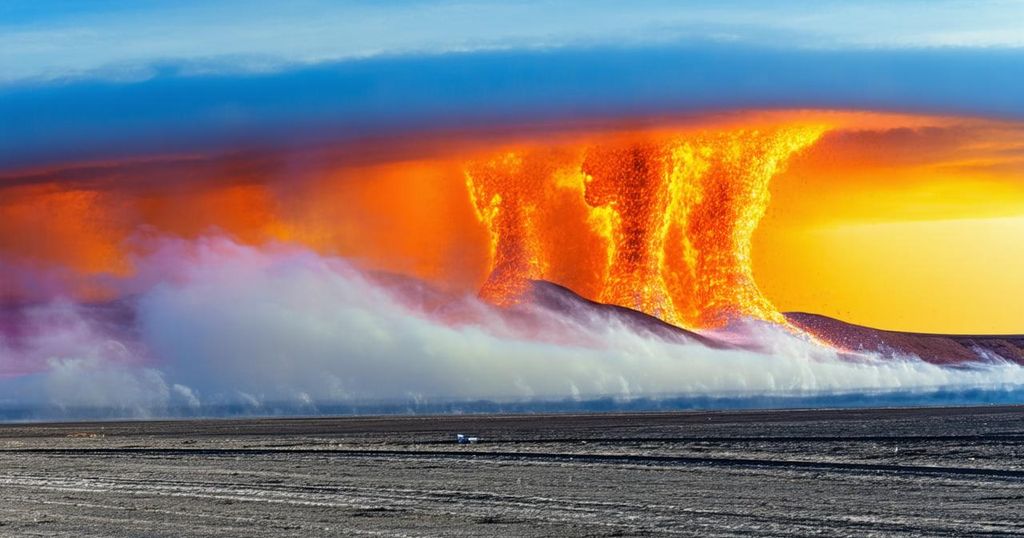UN Warns of Impending Climate Crisis: World on Track for 3.1C Warming
The UN warns that the world is on track for a dangerous rise of 3.1C in global temperatures without immense efforts to cut carbon emissions. The latest UNEP report calls for urgent global action as current national commitments fall short of the necessary reductions needed to meet the 1.5C climate goal. With emissions increasing and critical upcoming climate negotiations on the horizon, the situation demands immediate international mobilization to mitigate the impacts of climate change.
According to the United Nations, the world is on course for a potentially catastrophic rise in global temperatures of “3.1C” this century unless there is an unprecedented global effort to reduce carbon emissions. This stark warning was issued in the UN Environment Programme’s (UNEP) latest report, which assesses the gap between necessary emissions reductions needed to limit warming to “1.5C” and the current actions of nations. The report emphasizes that failing to mobilize on a massive scale will likely render the 1.5C target effectively unattainable. With ongoing emissions trajectories indicating a rise of between “2.6C” and “3.1C”, the UN has highlighted the urgency for nations to enhance climate commitments ahead of the upcoming Cop29 conference in Baku, Azerbaijan. During the 2015 Paris Agreement negotiations, countries agreed to limit temperature increases “well below” 2C, with specific efforts aimed at constraining it to 1.5C. Nevertheless, despite the establishment of national climate action plans, known as nationally determined contributions (NDCs), the required emission reductions are not materializing quickly enough. In fact, emissions rose by 1.3% in 2023 compared to the previous year—reaching levels that surpass the average rise over the past decade, predominantly driven by G20 nations that contribute significantly to global emissions. UN Secretary-General António Guterres remarked that the world is “teetering on a planetary tightrope” and urged leaders to take decisive action to avoid calamitous climate consequences. UNEP Executive Director Inger Andersen underscored the imminent need for heightened urgency in climate efforts, noting that even a brief overshoot of 1.5C necessitates unwavering commitment to achieving a sustainable and net-zero world. The report concluded by stressing that nations must collectively commit to substantial reductions in greenhouse gas emissions by 2030 and 2035, with emphasis on increasing renewable energy capacity, enhancing energy efficiency, and restoring ecosystems to mitigate climate change impacts.
The topic of climate change and global warming has gained increasing attention over the years, with a primary focus on limiting the rise in global temperatures to avert severe environmental consequences. The Paris Agreement set a collective goal for countries to pursue efforts that would sustain the increase in temperature to “well below 2C”, with significant concern surrounding maintaining the rise at 1.5C. Scientific consensus indicates that surpassing these thresholds could catalyze catastrophic natural disasters, including extreme weather events, loss of biodiversity, and adverse economic impacts. The necessity for countries to submit actionable plans, known as NDCs, to reduce emissions by 2030 and beyond has become crucial in addressing climate change effectively. However, as highlighted in the UNEP report, the current pace of emission reductions globally is falling short, warranting urgent mobilization and commitment from nations around the world.
In summary, the UN has issued stark warnings regarding the potential for a catastrophic rise in global temperatures by the century’s end, highlighting the urgent need for countries to mobilize resources and strengthen climate action. The gap between pledged emissions cuts and actual progress remains alarming, with an emphasis on the necessity for enhanced commitments from the G20 and all nations to effectively strive toward achieving the 1.5C target. The call to action is clear: global cooperation and determined efforts are imperative if the world is to avert the dire consequences of unchecked climate change.
Original Source: www.independent.co.uk




Post Comment